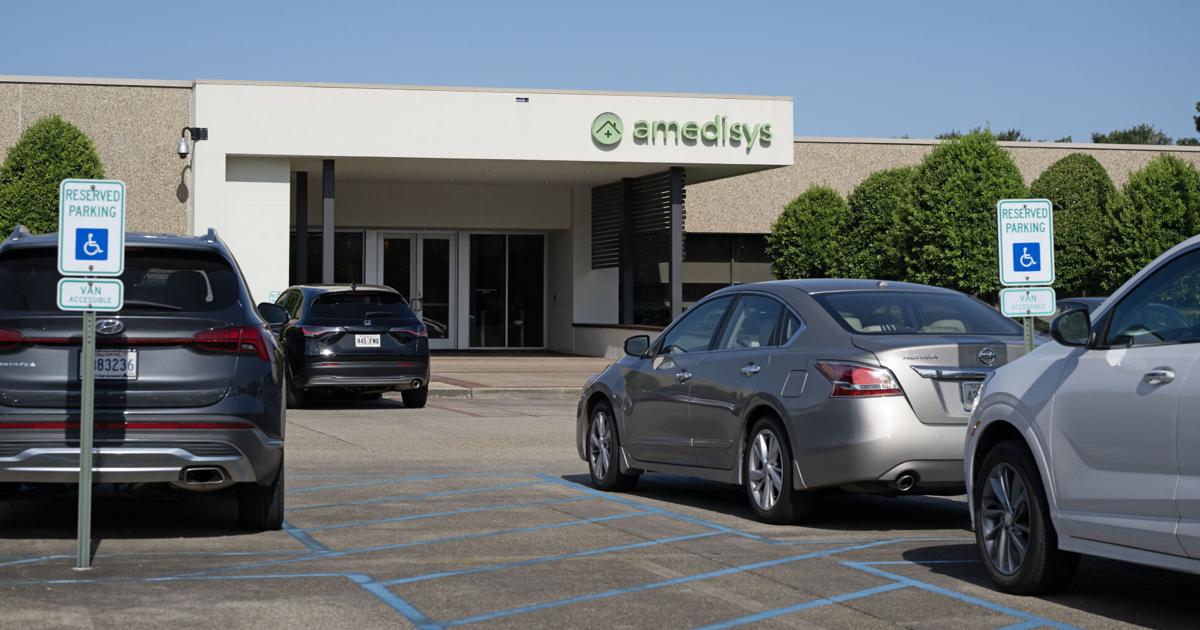UnitedHealth Group completed its $3.3 billion purchase of Baton Rouge-based Amedisys Thursday morning, more than two years after plans to join the nation’s two largest home health and hospice care companies were first announced.
The closure of the deal was announced in a filing with the U.S. Securities and Exchange Commission, issued before the markets opened. Amedisys’ stock was delisted from the NASDAQ exchange.
Amedisys is now part of UnitedHealth’s Optum health services unit.
“Home health care is a critical component in Optum’s commitment to value-based care, which is designed to keep patients healthy within their own homes,” UnitedHealth said in a statement. “Together, we look forward to meaningfully improving home health and hospice care options for patients and their families.”
UnitedHealth agreed to buy Amedisys for $101 per share in June 2023. Under the agreement, Amedisys will continue to operate as a wholly-owned subsidiary of UnitedHealth, with an office in Baton Rouge and operations in Nashville, Tennessee.
Peter Ricchiuti, a finance professor at Tulane University who tracks regional stocks across the South through the university’s Burkenroad Reports, said he doesn’t expect the deal will have much of an impact on the Baton Rouge economy. He doesn’t expect layoffs to result from the acquisition.
“I don’t think it’ll be a big deal because the executives moved to Nashville,” he said.
This is the second south Louisiana-based home health and hospice company UnitedHealth has purchased in recent years. In 2023, UnitedHealth acquired Lafayette’s LHC Group in a $5.4 billion deal.
But while the LHC deal went fairly smoothly, the process of buying Amedisys was far more complicated.
In May 2023, a few weeks after Amedisys announced it had reached a deal to be acquired by Option Care Health in a stock deal, the company said it had received an offer from UnitedHealth. Under that offer, UnitedHealth would pay $100 a share for Amedisys.
At the end of June 2023, Amedisys announced it had reached a deal where UnitedHealth would pay $101 a share.
The deal was set to close in the second half of 2024, but in November, the U.S. Department of Justice sued to block the purchase, citing concerns the combination would hinder access to home health and hospice services.
Then a big political shift cleared the way for the merger to happen. While the Biden Administration took a hard line on antitrust issues, the Trump Administration has been more willing to cut deals with companies to allow acquisitions to proceed.
Last week, the DOJ said it had proposed a settlement requiring Amedisys and UnitedHealth Group to divest 164 home health and hospice facilities — the biggest divestiture of outpatient health services — to clear the way for a merger. That ended the legal battle.
The department also proposed that Amedisys pay $1.1 million to the United States for false certification that they provided accurate documents to the U.S.
The divestiture impacts home health and hospice locations in 19 states. The only affected location in Louisiana is Amedisys Hospice in Lake Charles, according to a map of divestiture locations. In total, the 164 proposed divestiture locations account for $528 million in revenue. The facilities will be acquired by The Pennant Group and BrightSpring Health Services.
Amedisys was founded in 1982 by the late Bill Borne, a registered nurse who said he saw numerous cases of people who were hospitalized but didn’t need to be. Patients generally recover faster and do better at home, given the right medical support, he said.
The business went through significant ups and downs in the 1990s and came close to filing for bankruptcy. Borne said he didn’t file for bankruptcy at that time because he didn’t have the money to pay the legal fees. To keep Amedisys going, Borne essentially dismembered his company, selling off the money-making lines, including nurse staffing and doctor practice management. He kept home health nursing and used the money he raised to buy home health agencies.
In the 2000s, Amedisys grew through a series of acquisitions and became one of the country’s largest home health operators. The company opened a 114,000-square-foot headquarters in a radically remodeled former Schwegmann’s supermarket on South Sherwood Forest Boulevard.
Advocate Staff Writer Ianne Salvosa contributed to this report.

